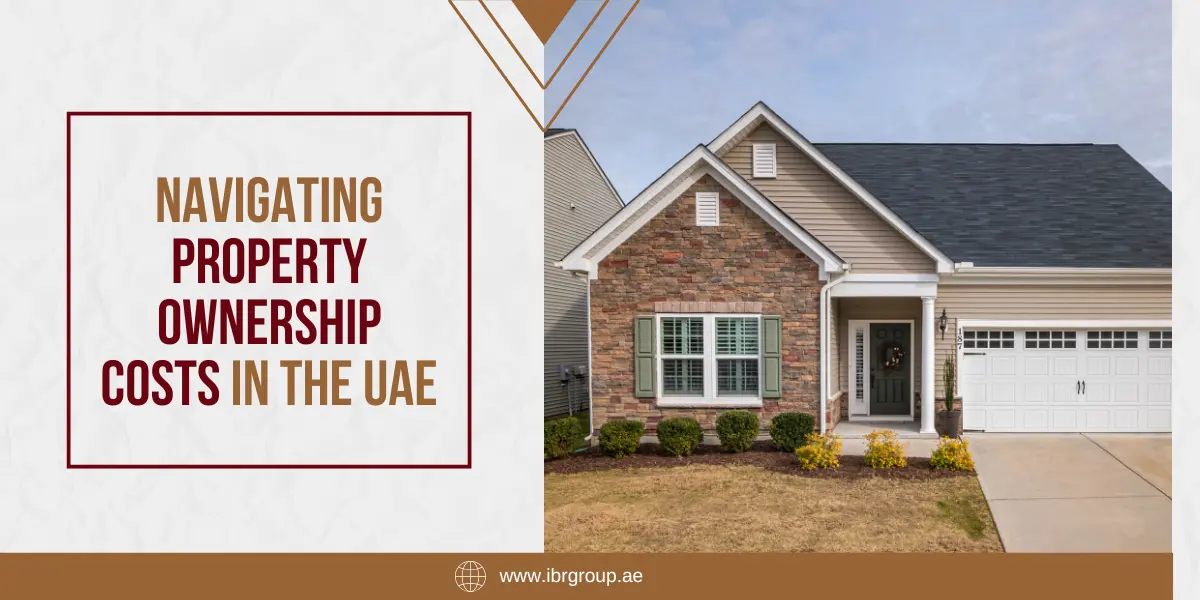
Navigating Property Ownership Costs in the UAE
Navigating Property Ownership Costs in the UAE
The United Arab Emirates, which is known for its vibrant real estate market and luxurious properties, draws investors from all over the world. Although it is frequently thought of as a tax haven, it is important to understand the costs of property ownership. This guide offers a thorough summary of these costs, assisting owners in making well-informed decisions when purchasing, selling, or inheriting property in the UAE.
An Overview of the Tax Environment in the UAE
The UAE provides an advantageous environment for investors and property owners, especially because it does not impose many traditional taxes. Among the main benefits are:
• No Property Tax: The value of owned real estate is not subject to an annual tax.
• No Capital Gains Tax: Real estate sales proceeds are exempt from taxes.
• No Property Tax: There is no tax on an individual’s wealth or net worth.
• No Legacy Tax: There are no inheritance tax consequences when property is transferred to successors.
However, despite these benefits, certain fees and charges apply to property transactions and ownership.
Property-Related Costs: A Detailed Breakdown
Costs of Purchase and Sale:
- Transfer Fees: When transferring property ownership, the Land Department (such as the Dubai Land Department) must receive certain required fees, sometimes referred to as registration costs. By emirate, they differ:
· Dubai: 4 percent of the total cost
· Abu Dhabi: 2% of the acquisition cost - Registration Fees: Registration fees are a set cost associated with formally registering a real estate transaction. These are ranked according to the worth of the properties in Dubai.
- Mortgage Fees: Extra expenses such as processing fees, valuation fees, and mortgage registration fees (such as 0.25% of the mortgage amount in Dubai) are applicable if the transaction is financed.
- Agency Fees: These are normally paid by the seller and can amount to up to 2% of the sale price of the property.
- Additional costs: These could include constructor costs (for properties still under construction), certification fees, and No Objection Certificate (NOC) fees.
Costs of Permanent Ownership:
- Owners Association Fees: These costs cover upkeep and maintenance for homes in neighborhoods with common areas.
- Service Charges: These support upkeep of common spaces and are comparable to owners association dues.
- Municipality Fees (Housing Fees): In certain emirates, these are yearly charges imposed on residential leases that are normally covered by the renter.
- Utility Fees: Constant expenses for utilities such as power, water, waste management, and district cooling.
- Rental Taxes: Depending on the emirate, rental taxes are levied on rental income. For instance, the annual lease value is subject to a 5% rental tax in Dubai.
- Value Added Tax (VAT): Agency fees and other transactions pertaining to real estate may be subject to VAT.
- Corporate Tax: Although the UAE has implemented corporate tax, it mainly impacts companies, particularly real estate developers, and is levied on profits beyond a specific amount. Landlords who receive high rental revenue may also be indirectly impacted.
Why the UAE's Real Estate Tax System Is Among the Best
- Low Total Costs: Ownership expenses are greatly decreased by the lack of an annual property tax.
- Competitive Fee Structure: Despite costs, owning a home in the United Arab Emirates is frequently less expensive than in other major cities across the world.
- Encourages Investment: A thriving real estate market is fostered by the tax-friendly environment, which draws investors.
